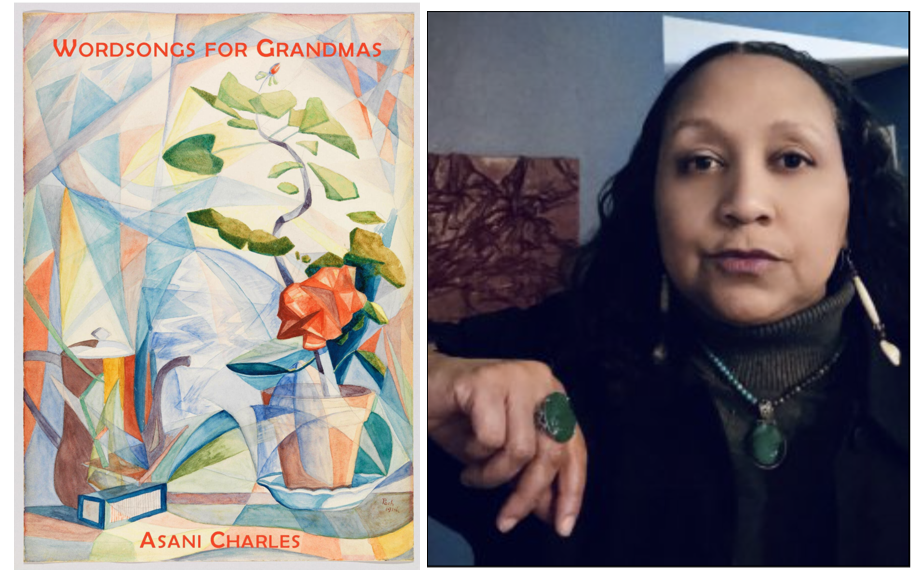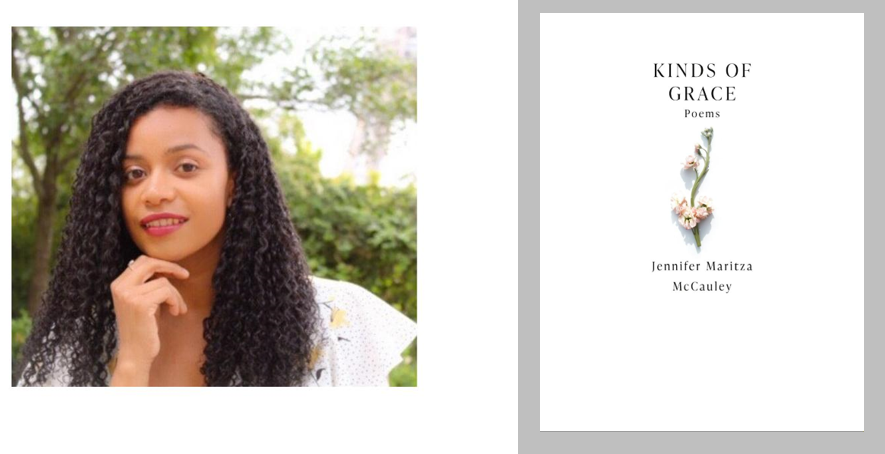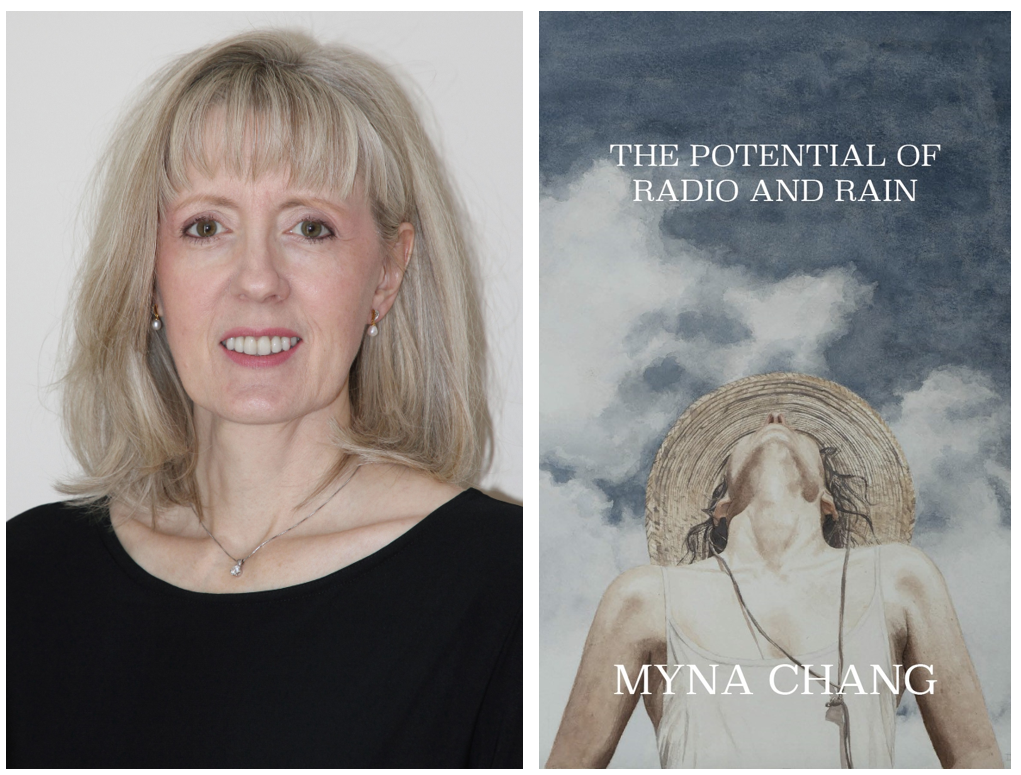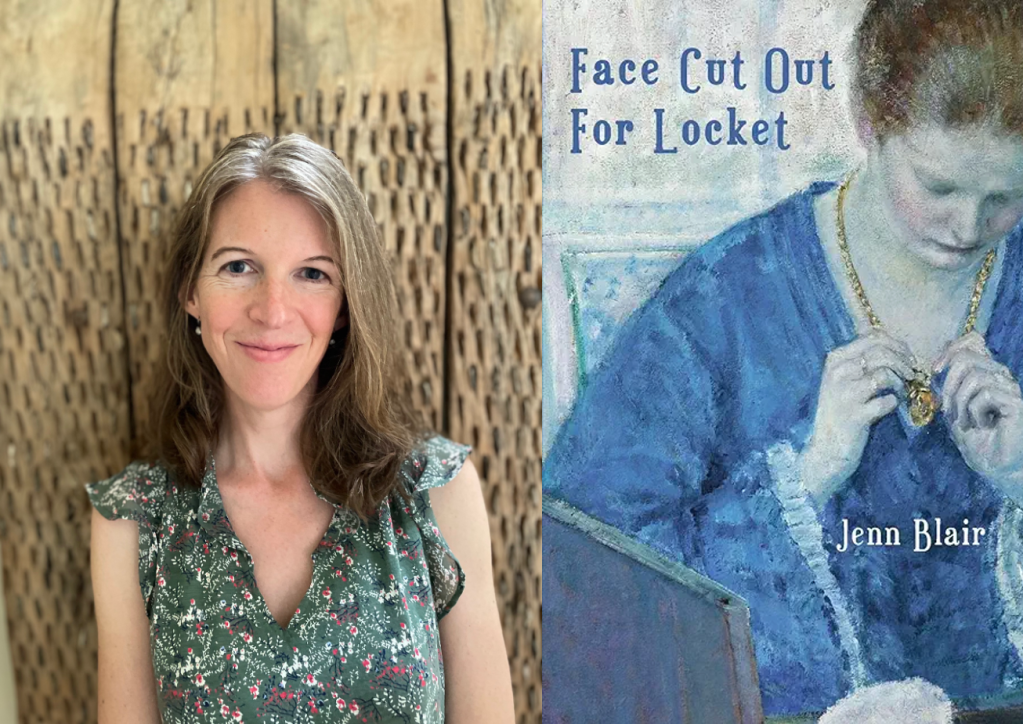“I’ll jot down a line or idea and think about it forever before I start writing a poem.”

The Bamboo Wife (Trio House Press, 2024)
Could you tell us a bit about your growing up and your path to becoming a writer?
I grew up in a small rural town in Maryland just south of the Mason-Dixon line. My father was a state trooper, and my mother, a South Korean immigrant, worked in a sewing factory and spoke very little English. We lived on a small farmette where my brother and I had no neighbor friends, and so I read fiendishly, devouring nearly every book in our public library (sometimes twice). I studied literature so that I could continue reading, and I earned a doctorate in late nineteenth and early twentieth-century American literature at the University of Maryland. I never once took a creative writing class. In 2011–tired of the small joys of academic publishing—I wrote a poem and entered it into the Split this Rock contest. Naomi Shihab Nye picked it as the winner, and I was hooked on writing poems.
A question from Anna Laura Reeve: Do you understand your role in society—as a poet—to be influential, critical, observant, or something else?
I would not call my work influential, and I know other poets who are much more observant than I am. What I do best, I think, is to take what’s in the human heart and transfer it onto the page effectively. I write mostly about heartache, which is a universal feeling. When readers tell me they understand exactly what I’m communicating—be it a gut punch or a soft ache—I know I’ve made something good.
How do you contend with saturation? The day’s news, the disasters, the crazy things, the flagged articles, the flagged books, the poetry tweets, the data the data the data. What’s your strategy to navigate your way home?
This is a really interesting question. I am very protective of what and how I consume information throughout the day. I read a lot of headlines because I want to be aware of events in the world, but I carefully choose what I dig into. My father used to share with me what I called the “horror report,” but since his death, I find myself avoiding almost all forms of bad news. I limit my interactions with social media, mostly keeping up with friends and their work.
A question from Shome Dasgupta: How are you doing?
That’s such a kind question to ask! My father died a month ago, only two and a half years after my mother died. My parents were both in their mid-seventies, taken by that apocalyptic horseman cancer. It’s a very strange feeling to be parentless. I’ve never really felt as vulnerable as I do now, and also, maybe surprisingly, I’m less afraid of things. Maybe this happens when too many irreversible things happen to you.
A question from Karisma Price: Do you have any self-care practices you include when writing about something heavy?
I am a slow and then a fast writer. It takes me a long, long time to get to something I’ve been thinking about writing. I’ll jot down a line or idea and think about it forever before I start writing a poem. Maybe this is my way of inuring myself to any heavy subject. When I finally sit down to write it, I write very very fast—perhaps to get through it. I never thought about this process as self care, but maybe it is.
A question from Toni Ann Johnson: Why are you writing about what you’re writing about?
I grew up a practicing Catholic; I even considered taking vows as a nun at one point in my young life. No longer practicing, I continue to be interested in sin and redemption, and I am committed to exploring the dignity of every human person, no matter what they have done or whom they have injured. I’ve made a lot of mistakes in my life—as an adult child, as a parent, as a wife, and as a friend. I suppose I’m always retracing that ground and hoping my work brings a sense of shared struggle and hope to people who read my work.
What obsessions led you to write your book?
I’m obsessed with the concept of love and how we fail at it daily.
How did you decide on the title of your book?
My book is titled after an object in ancient Korean culture. A “bamboo wife” is a sleeping aid—a body-length, ribbed drum that men once wrapped their arms and legs around to sleep. It was meant to keep the sleeper cool in warmer months. The title poem considers what the actual wife is doing while her husband breathes stale air into her rigid form. She is, of course, seeking escape.
What’s the oldest poem in your book? Or can you name one piece that catalyzed or inspired the rest of the book? What do you remember about writing it?
The oldest poem in the book is titled “Virginia is for Lovers,” originally published in The Patuxent Review. I wrote this poem shortly after I uprooted my family and moved to Virginia to start my life over. It was a very lonely and disorienting time, and writing helped me adjust to my new home.
Which poem in your book has the most meaningful back story to you? What’s the back story?
I wrote “Johns Hopkins Hospital, at the Corner of Orleans and N. Broadway” just after my mother had endured her twelfth surgery to treat the rare form of head and neck cancer that eventually killed her. The opioid-addled teenaged girl who tapped on the hood of my car, gently, to point out that the light had turned green, looked just like one of my students. I thought, “my mother is in pain, but she’s not in as much pain as this girl.”
Which poem is the “misfit” in your collection and why?
That is a great question. “Curfew” is a poem I wrote many years ago about my teen years, and it describes my brother driving us home like a madman so we could make curfew. My only sibling, 11 months my senior, appears infrequently in my work. I suppose that’s because he’s still a mystery to me, after all these years. One editor of the book, Jan Freeman, liked this poem and thought it should be in the collection. I’m still not sure about it.
What was the final poem you wrote or significantly revised for the book, and how did that affect your sense that the book was complete?
“Je mange mes mots” was the last poem I wrote for the collection, and it appeared last year in The Sun under its English title. The journal editor, Staci Kleinmaier, and I worked through significant edits to this syllabic poem, which juxtaposes the eating of ortolan buntings and the imperfect raising of a teenaged girl. It is one of my favorites, and I had little else to say in this book once it was finished.
A question from Caroline M. Mar: What was the soundtrack of your book? Were there specific songs, musicians, or sounds that helped you access your writing?
Jason Isbell writes some of the most melancholy songs I’ve ever heard, and I think he’s a masterful songwriter. His album, Reunions, was in my head when I was writing the final poems in the book.
A question from Lucien Darjeun Meadows: I’m always fascinated by ancestral lines, inheritances, and legacies. So, I would love to ask: What three (or so) authors, creatives, or works most influenced your collection? And/or, if readers are moved by your collection, who would you recommend we next seek out?
I love the work of Sharon Olds, Ada Limón, and January Gill O’Neil (her new book, Glitter Road, is amazing!). They know how to represent what’s in the human heart on the page.
A question from Noreen Ocampo: What is something that fuels you as a writer, your writing practice, or just you as a human being?
I’ve been teaching yoga for the past few years, and I enjoy it more than practicing yoga myself. I teach two regular classes: one to a group of older, retired women in my community and the other to the faculty and staff at the college where I work. They are so thankful for the ways I help them feel good in their bodies and in their minds.
A question from Talia Lakshmi Kolluri: What tools do you use to remain uninhibited in your writing?
I like to juxtapose two very unlike things in my poems to see where those comparisons take me.
What are you working on now?
I’m working on a new collection, and by working on it I mean to say I’ve written the first poem that may become the title poem. The collection will be about disasters in our lives and how we manage them.
What question would you like to ask the next author featured at Speaking of Marvels?
Do you ever find yourself hiding something in plain sight in your work? What is it? (Don’t tell if you’re still hiding it!)
*
Leona Sevick’s recent work appears in Orion, Birmingham Poetry Review, Blackbird, The Southern Review, and The Sun. Leona serves on the advisory board of the Furious Flower Black Poetry Center and is provost and professor of English at Bridgewater College in Virginia, where she teaches Asian American literature. She is the 2017 Press 53 Poetry Award Winner for her first full-length book of poems, Lion Brothers. Her second collection of poems, The Bamboo Wife, will be published by Trio House Press.








